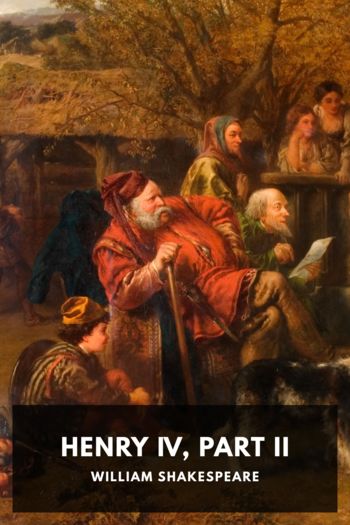Hot Stew by Fiona Mozley (feel good books .TXT) 📗

- Author: Fiona Mozley
Book online «Hot Stew by Fiona Mozley (feel good books .TXT) 📗». Author Fiona Mozley
Some of his disciples are around him. Paul Daniels comes in.
The man they call Paul Daniels is fuming. His rage has been building for months. He has always been an emotional man, with whirling, tumultuous thoughts. His schemes and ideas in these last months have gathered a kind of physical presence he can almost touch. It is as if, with Debbie McGee gone, his thoughts and feelings have taken on her weight; the place she used to occupy. Only they are louder and more aggressive than his woman ever was. They tug and pull at him and obscure his senses.
Paul Daniels stands in front of the Archbishop and lifts a long index finger in his direction.
“I have come to claim my crown.”
The Archbishop gets up to face his challenger. He shakes his garments. He draws himself up to his full height. Usually frail, he now looks strong. “The crown is on my head. And that is where it will stay.”
“It’s mine,” Paul Daniels protests. “I found it. I pulled it from the earth. It yielded to me.”
“I am the lord of this manor. I am the ocean to which all rivers lead. If gold is found, I shall have it.”
“You’re a thief. You would have nothing if it wasn’t for us.”
There are murmurs of accord from the gathered crowd, but when the Archbishop spins around as if to confront those whose voices he heard, they lower their eyes.
The man they call Paul Daniels speaks again. “You’ve had your time. We want change.” It is unclear whether he speaks for anyone else in the room, but Paul Daniels, at least, lunges forward and pushes the old man to the ground. The Archbishop puts one hand out to break his fall and the other up to his head to hold onto the crown. He hits the earth. A crunch of brittle bones breaking rings out through the cellar. A shelf is knocked, and decades of tat come tumbling down.
Paul Daniels reaches down for the crown, but the Archbishop is not yet defeated. He kicks out with both legs and brings his adversary to the ground with him. They grapple. Hands are pressed to throats; fingers are pressed into eyes. The man they call Paul Daniels uses his teeth. The man they call the Archbishop makes the most of his long, sharp fingernails. Blood is drawn. Paul Daniels is above his adversary, bearing down. He pulls the crown from the prelate’s head but sacrifices his position to do so. The Archbishop grabs at the magician’s throat and squeezes. Then Paul Daniels pulls back, spluttering, but rolling on the floor. The Archbishop has the advantage.
At first, the crowd stands to watch the men wrestle. Then they begin to drift away. The Archbishop and Paul Daniels are left to the room, and the crown, and the battle which shows no signs of concluding.
Last Night Stand
Precious will never get used to the long nights. When she moved to London, it wasn’t the damp that shocked her, or the cold. She was expecting those things. Those are the things everyone warns you about on this island. It was the dark. When she used to visit with her family as a girl, it was always in summer. When she moved here, she arrived in May, when everything was bright and fresh. But then the light left. She couldn’t believe it when November came. She didn’t initially notice there was less daytime, and then she saw that she was going to work in the dark and coming home in the dark too. And then December came and it was even worse.
Precious is standing by the window, looking out onto the street. It is dark. It is the shortest day. It is the longest night. The streetlights are glowing. Some of the bulbs are the old yellow type that have shone against the Soho night for decades, once novel, now dated. Others have been replaced with bright white LEDs. Precious dislikes the new color. It makes visible that which should, at night, remain invisible. It illuminates the city’s wrinkles, like an aging starlet betrayed by an unexpected camera flash. The pavement shines. Puddles reflect the light, each droplet a tiny star.
Some men across the street are unloading a drum kit from the back of a white van and carrying it to a bar at the end of the road. One of the men stacks a couple of cymbals precariously on top of the kick drum and lifts them all into the air. She watches as the cymbals begin to slide and hears the jarring scrape of the brass against the rim of the drum. The man spots them falling





Comments (0)